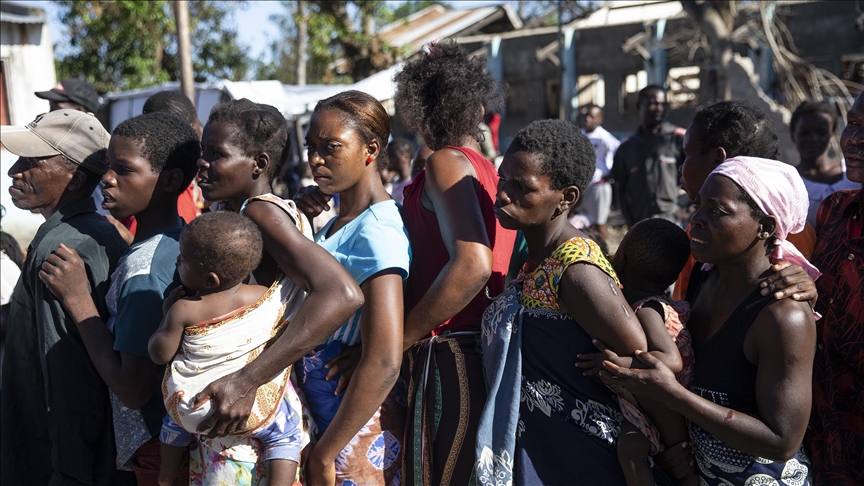Human rights threatened by military interventions in Mozambique
Social, economic issues must be addressed; dialogue encouraged, says expert

LOME, Togo
Botswana sent troops on Monday to Mozambique to combat escalating terror violence as Angola is holding a plenary meeting to decide on similar action on Tuesday.
A total of 396 Botswanan troops have joined Mozambique since July 26 to support Mozambique in combating the imminent threat of terrorism and acts of violent extremism in the Cabo Delgado region in the north, as part of the Southern African Development Community Mission in Mozambique (SAMIM).
They join 1,000 Rwandan and 60 Portuguese soldiers previously deployed. Angola is considering sending 20 military advisers.
Mozambique has previously requested military assistance from southern African countries to fight jihadists who have been terrorizing the northeast for more than three years.
Botswanan President Mokgweetsi Masisi made the case when he said: "However complex the security situation in the SADC (Southern African Development Community) region maybe, as in the past, Botswana's foreign policy objectives have been and remain very clear. Botswana's security cannot be achieved without that of its neighbors.”
But Zimbabwean political strategist Justice Simango fears the intervention cannot provide a meaningful and lasting panacea for Cabo Delgado.
"The system of regional talks lacks implementation. This is the case with the African Union," he told Anadolu Agency.
“The 15 SADC states are also experiencing crises and have limited funds that could prevent them from meaningfully addressing the socio-economic grievances fueled in the aid seeker’s country.”
Simango noted that African governments prefer to fight terrorism with a heavy-handed security approach but "if President Emmerson Mnangagwa of Zimbabwe, Cyril Ramaphosa of South Africa and their counterpart in Botswana, respectively decide to deploy large-scale military troops to Cabo Delgado, the counter-approach will have serious consequences."
He said there will be "significant human rights violations committed against the civilian population, especially women and girls” and civilians may become victims of the struggle when, because of unemployment, young people find themselves enrolled in the rebellion alongside terror groups.
"To avoid this, the government must address the social and economic problems that affect the population. It must also stop fighting fire with fire because in Nigeria this method is a failure against Boko-Haram terrorism. They must try dialogue instead," said Simango.
He said the security deterioration already engages a series of risks for extractive operators and for the security of goods and people in the distribution routes that have become "death traps."
"Mining operators who depend on logistics routes such as seaports are likely to witness more ambushes and rent-seeking roadblocks in the coming years," said Simango.
He said he was convinced that such developments are bad for business, not only for Mozambique but for Africa as a whole, especially now that the continent is trying to implement the African Continental Free Trade Area involving 54 African Union members.








